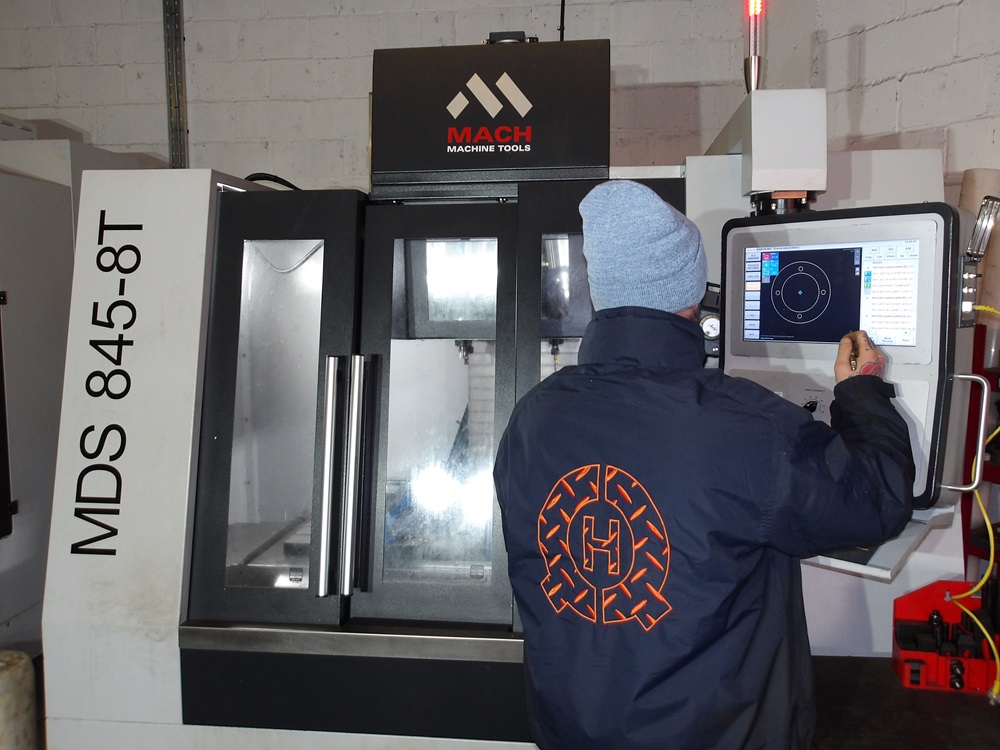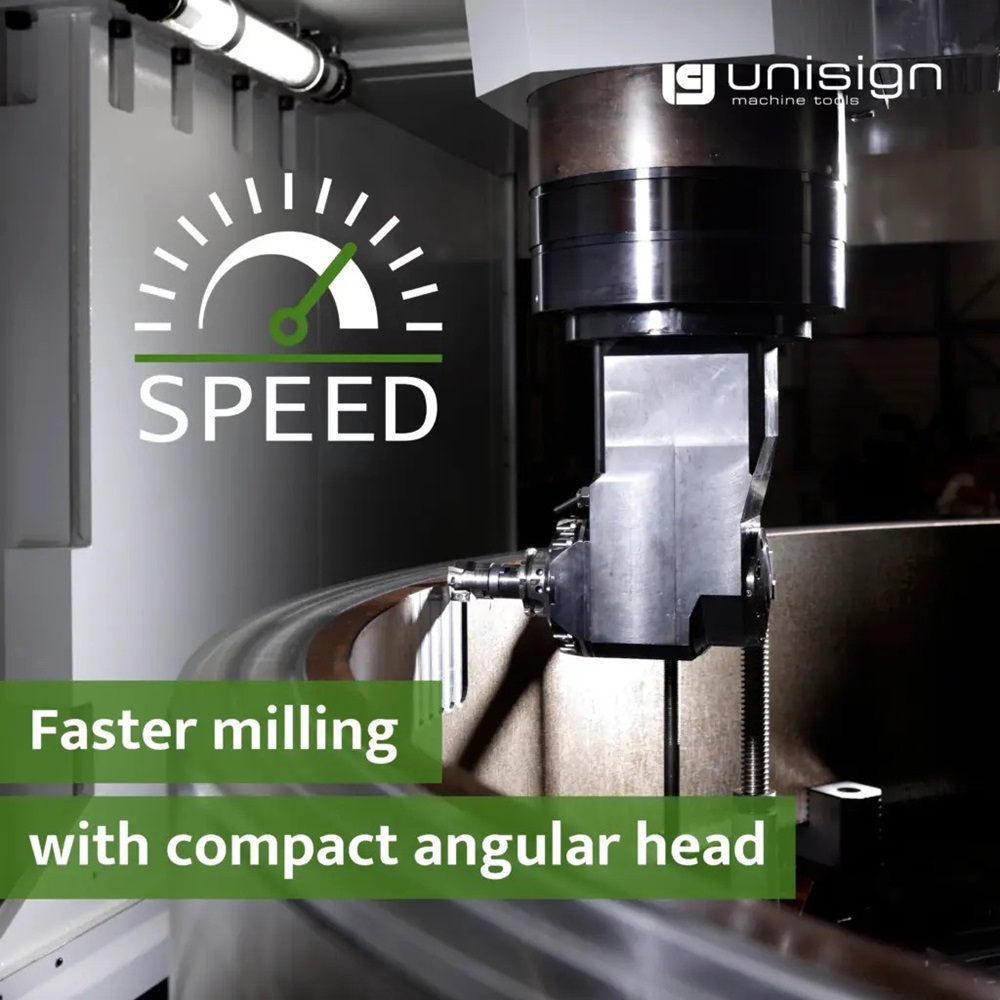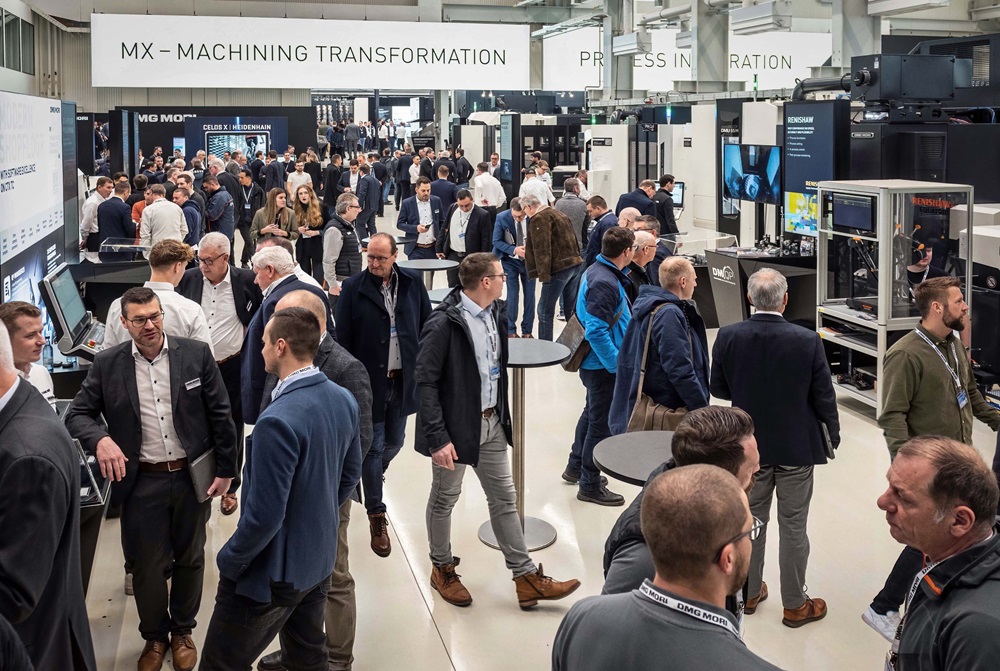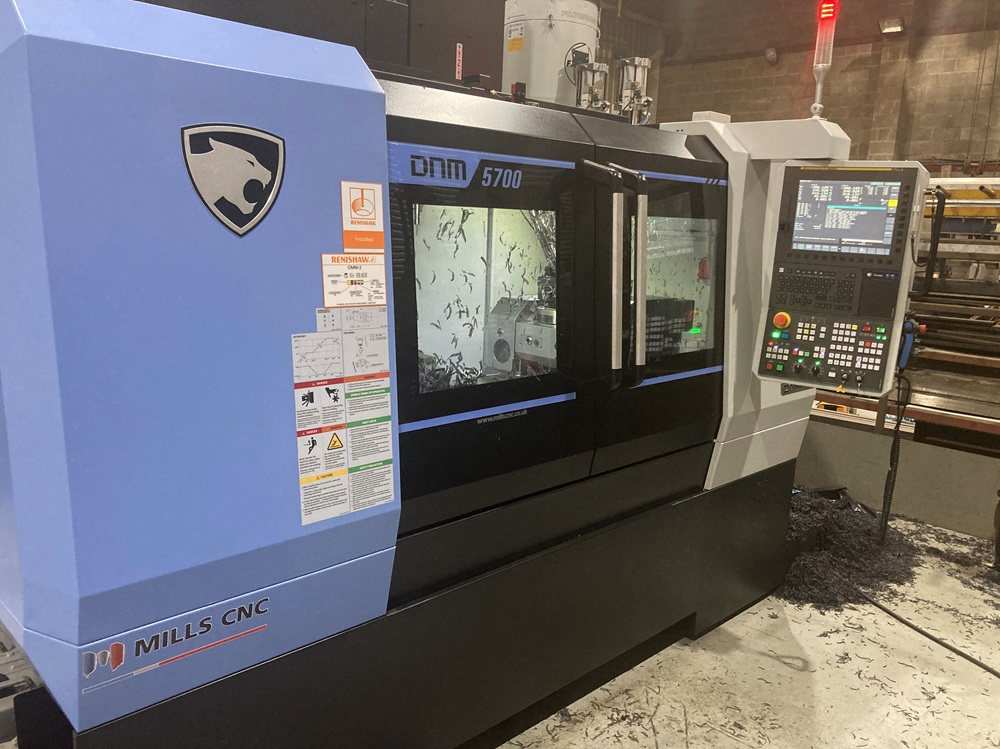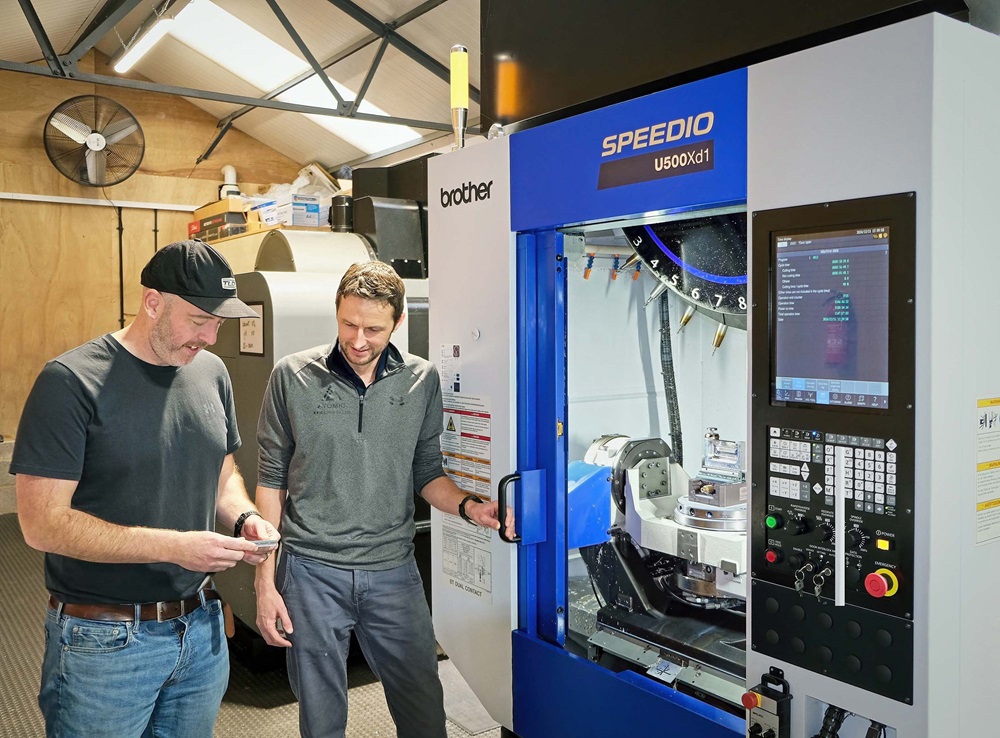MACH Machine Tools has recently supplied South Shields-based HQ Fabrications with two new CNC machines. The MACH MDV 1160 vertical machining centre and MACH MDS 845-8T toolroom mill were installed at the company’s 790 m² facility in Jarrow towards the end of last year. Both machines, equipped with the DynaPath control system, have been working flat out machining jigs and fixtures, as well as prototypes, one-offs and small batches of pre-production and production parts for a diverse range of UK customers.
HQ Fabrications regularly monitors and evaluates the performance of its machine tools and, to enable the machining of larger workpieces, made the decision in early 2024 to invest in the new MACH MDV 1160 three-axis vertical machining centre.
“Up to that point we had always invested in pre-owned machines,” says Chris Hall, HQ Fabrications’ owner and managing director. “However, one of our existing used machines that we had identified for machining larger workpieces, wasn’t as reliable as we had originally hoped.”
He continues: “We were a little apprehensive investing in a new machine, but representatives from MACH Machine Tools simplified the whole process from machine identification through to delivery, installation and commissioning. They even offered us a great part-exchange trade-in deal on the previously mentioned used machine.”
The positive experience resulted in the company further strengthening its in-house milling capabilities by investing in a second machine: a MACH MDS 845-8T toolroom mill.
“Our two new MACH machines are proving to be a great investment,” concludes Hall. “MACH Machine Tools’ open and transparent approach, combined with their technical know-how and readily-available support, made the whole process quick and seamless.”
More information www.machmt.co.uk






